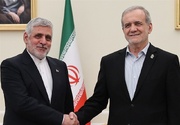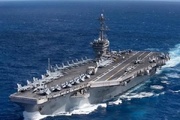As a professor, author, editor, and lecturer, Michael Walzer has addressed a wide variety of topics in political theory and moral philosophy: political obligation, just and unjust war, nationalism and ethnicity, economic justice and the welfare state. His books (among them Just and Unjust Wars, Spheres of Justice, The Company of Critics, Thick and Thin: Moral Argument at Home and Abroad, On Toleration, and Politics and Passion) and essays have played a part in the revival of practical, issue-focused ethics and in the development of a pluralist approach to political and moral life. For more than three decades Walzer served as co-editor of Dissent, now in its 64th year.
His articles and interviews appear frequently in the world’s foremost newspapers and journals. He is currently working on the fourth volume of The Jewish Political Tradition, a comprehensive collaborative project focused on the history of Jewish political thought.
His book, The Paradox of Liberation: Secular Revolutions and Religious Counterrevolutions, was published in March of 2015, and his new book, A Foreign Policy for the Left, was published in 2018.
Following is the text of his interview with Asre-Andisheh Magazine:
Do you think that ‘independence’ has become an outmoded concept under conditions of globalization and due to complex interdependence or do you consider it to be still relevant in a globalized world?
Until the state system is completed, and everyone who needs a state has one, I continue to believe in the value of independence. Free-standing states are still the necessary agents of security and welfare. That may not be true forever, but it is certainly true today--just ask the Palestinians or the Kurds, who don't have a state or anyone living in a failed state or in a state torn by civil war.
We are witnessing a very positive attitude toward nationalism in Europe during recent years and many European citizens stand against internationalism and multiculturalism and want to preserve their independence and national identity. How do you interpret and analyze this situation? Is it indicative of the fact that independence is still important to nations?
Statism and nationalism are not the same thing, but the most typical state is the nation-state, and I do support the right of endangered or persecuted nations to have a state of their own. But this has to be a liberal state, guaranteeing the rights of minorities, willing to take in refugees, and so on. So this is an internationalist position: everyone in the world should have the protection of a decent state. I do believe that nations have a right to preserve their culture, but not at the expense of other nations. Rightwing nationalism in places like Hungary and Poland should be opposed--and is opposed by many Poles and Hungarians, whom I regard as my political friends.
Some scholars believe that Mr. Trump's protectionism in America or Brexit and resurgence of far right in Europe are signs which indicate that independence still matters to states even in a network of complex interdependence. What is your idea? Do you agree with them?
Of course independence still matters, but what that means is that we argue among ourselves about what the policies of our country should be. Almost half of the British people and probably more than half now, opposed Brexit. And Trump is viewed favorably by only about 35% of Americans. Independent countries can and should cooperate with one another for mutual security, to curb environmental damage, to regulate the global economy, and to share the burdens of the refugee crisis. These kinds of cooperation depend upon decisions made in sovereign states.
In your idea is it possible to remain politically or culturally independent but to cooperate with other actors economically and commercially in current world system?
Yes.
Islamic Republic of Iran has adopted and perused an independent foreign policy since the revolution 1979 in both regional and international scales. Do you consider Iran successful in following such foreign policy vis-a-vis its neighbors or great powers?
Iran has certainly had some success in expanding its influence in the Middle east--though I suspect that this success entails a loss of independence for countries like Iraq, Syria, and Lebanon. Certainly, the tendency of politics in the Middle East in recent decades has not been to strengthen the independence of the countries of the region. Iran here is an exception to the general rule, and Iran is one of the reasons that effective independence is rare in the region.
What advantages and disadvantages does perusing an independent foreign policy have for a regional power like Iran?
That's really a question for Iranians to answer. It seems to me, looking on from a distance, that Iran's success in expanding its influence has come at considerable cost to the Iranian people--economic decline and a loss of political liberty. The recent demonstrations suggest wide-spread discontent with this result.
Interview by: Rooholamin Saeidi
ZZ/TT

























Your Comment